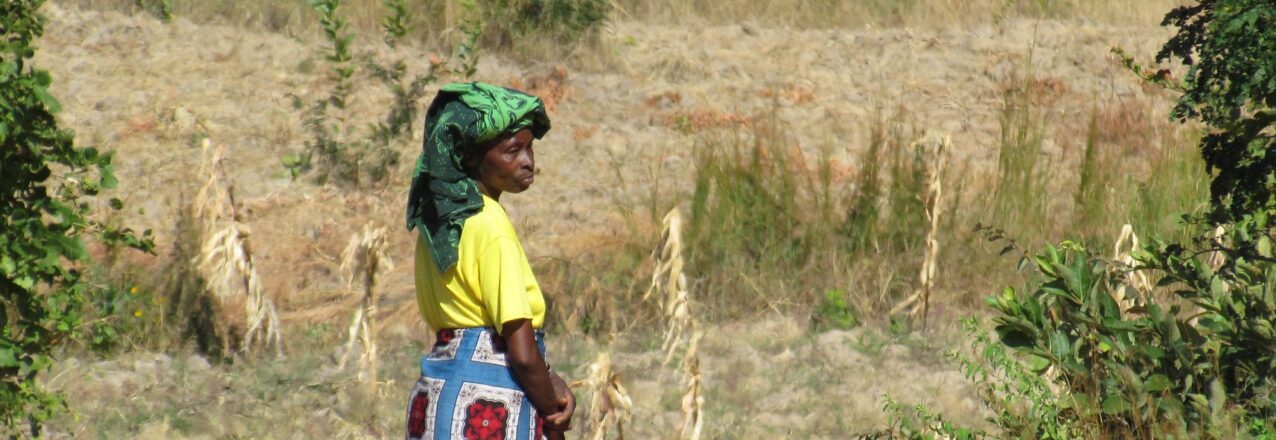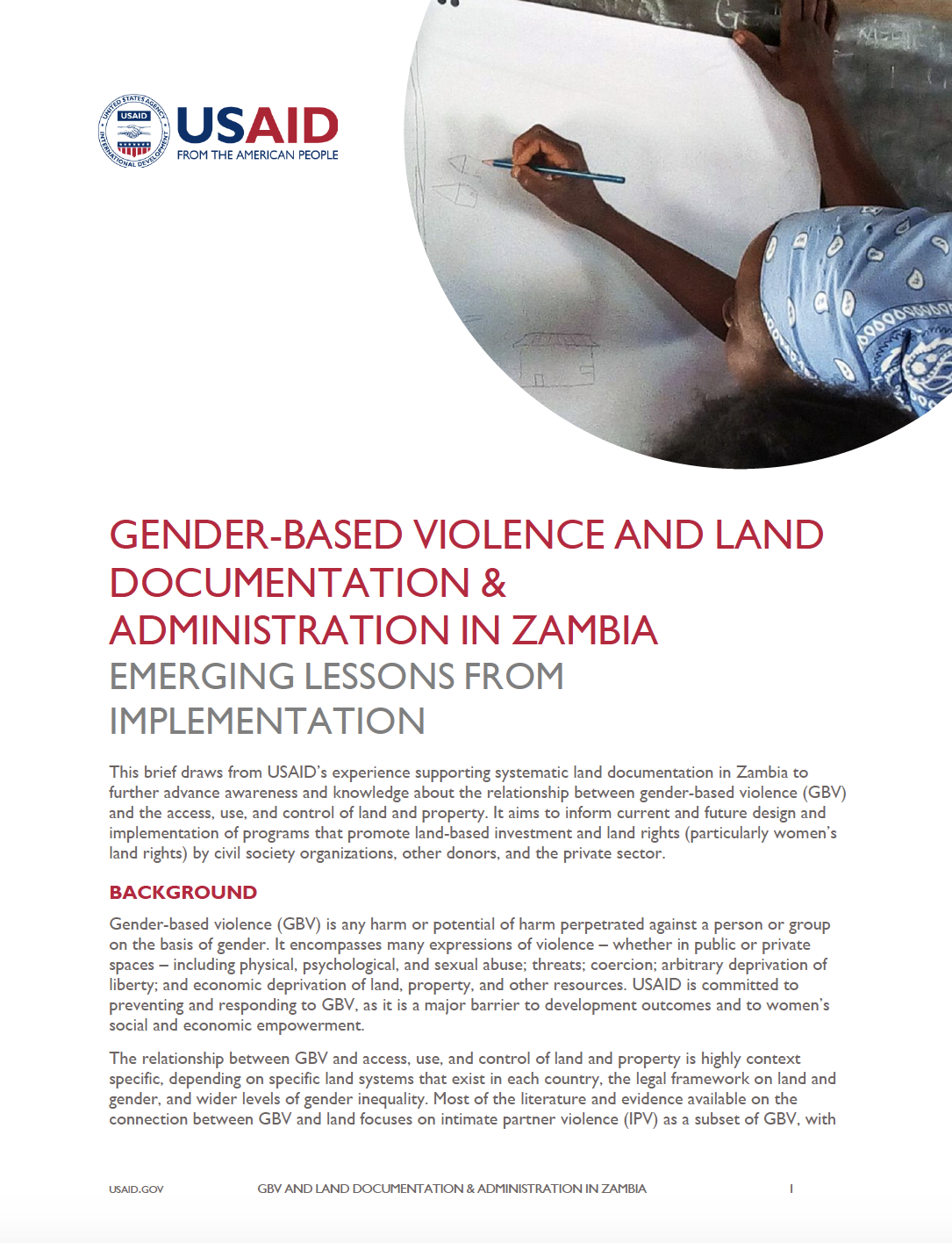Location
About Us
We envision a world in which land governance systems, both formal and informal, are effective, accessible, and responsive for all. This is possible when land tenure and property rights are recognized as critical development issues and when the United States Government and its development partners demonstrate consistent attention and a firm commitment to supporting coordinated policies and programs that clarify and strengthen the land tenure and property rights of all members of society, enabling broad-based economic growth, gender equality, reduced incidence of conflicts, enhanced food security, improved resilience to climate change, and effective natural resource management.
Mission Statement
The USAID Land Tenure and Resource Management (LTRM) Office will lead the United States Government to realize international efforts—in accordance with the U.S. Government’s Land Governance Policy—to clarify and strengthen the land tenure and property rights of all members of society—individuals, groups and legal entities, including those individuals and groups that are often marginalized, and the LTRM Office will help ensure that land governance systems are effective, accessible, and responsive. We will achieve this by testing innovative models for securing land tenure and property rights and disseminating best practice as it relates to securing land rights and improving resource governance within the USG and our development partners.
Members:
Resources
Displaying 1 - 5 of 441Targeted Study on the Role of Customary Land Formalization in Women’s Economic Empowerment
This report presents the results of a mixed-methods study on the role of customary land documentation in strengthening Women’s Economic Empowerment (WEE). The overarching purpose was to help fill critical knowledge gaps on if and how strengthening women’s land rights via formalized customary land documentation affects their empowerment and economic growth, with a specific focus on women’s access to credit and other financial services, land investments and income opportunities.
Targeted Study on the Role of Customary Land Formalization in Women's Economic Empowerment
This report presents the results of a mixed-methods study on the role of customary land documentation in strengthening Women’s Economic Empowerment (WEE). The overarching purpose was to help fill critical knowledge gaps on if and how strengthening women’s land rights via formalized customary land documentation affects their empowerment and economic growth, with a specific focus on women’s access to credit and other financial services, land investments and income opportunities.
How to Identify and Shift Harmful Gender Norms in the Context of Land and Natural Resources
USAID programs and Missions implement activities that improve land rights, support inclusive land and resource governance, build resilient livelihoods, and promote women’s empowerment. This brief explores the relationship between gender norms and women’s land rights, introducing key social norms concepts and tools to identify and shift harmful norms in the context of land and natural resources.
Madagascar -Land Tenure and Property Rights Profile
Madagascar is the world’s fourth largest island with a total land area of 581,800 km². The country’s unique wildlife and biodiversity resources have attracted tourists and significant donor investments over the last three decades. In 2003, the Government of Madagascar committed to tripling protected areas and, by 2016, the country’s total coverage of protected areas had increased from 1.6 million to 7.1 million hectares.Madagascar adopted a new approach to protected area management in 2006.
Gender-Based Violence and Land Documentation & Administration in Zambia
This brief draws from USAID’s experience supporting systematic land documentation in Zambia to further advance awareness and knowledge about the relationship between gender-based violence (GBV) and the access, use, and control of land and property. It aims to inform current and future design and implementation of programs that promote land-based investment and land rights (particularly women’s land rights) by civil society organizations, other donors, and the private sector.
Background




